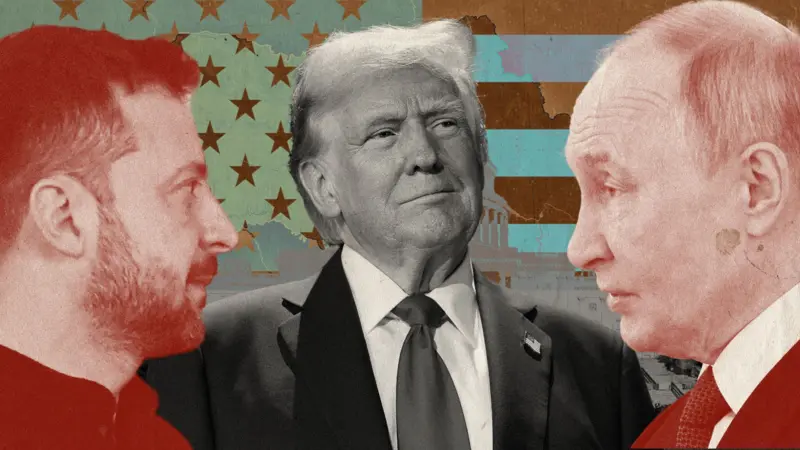As the war between Ukraine and Russia nears its third anniversary, speculation has arisen over whether peace negotiations could finally bring an end to the conflict.
Recent statements from key figures on both sides have fueled discussions about a possible resolution. U.S. President Donald Trump and Russian President Vladimir Putin agreed to initiate immediate negotiations to resolve the conflict.
Following a 90-minute phone call, both leaders expressed a mutual desire for peace and discussed plans for future meetings, possibly in Saudi Arabia, Washington, or Moscow. Trump spoke on the urgency of achieving peace, stating, “I think we’re on the way to getting peace.”
During a press briefing on February 10, 2025, in Kyiv, Ukrainian President Volodymyr Zelenskyy reiterated his stance on territorial integrity, stating, “Ukraine will not negotiate under threats. Any peace deal must ensure the full sovereignty of our nation.”
His comments responded to increasing pressure from international mediators, including the United Nations and the European Union, to engage in dialogue with Russia.
Meanwhile, in an address from Moscow on February 9, 2025, Russian President Vladimir Putin suggested that the Kremlin remains open to discussions but only under certain conditions. “Russia has always been willing to negotiate, but Ukraine and its allies must recognize the realities on the ground,” Putin said, referring to Russian-occupied territories in eastern Ukraine.
One of the most significant developments in recent days was a secret meeting in Geneva, Switzerland, where U.S. Secretary of State Antony Blinken and Russian Foreign Minister Sergey Lavrov reportedly met to discuss potential terms for a ceasefire.
A source close to the discussions revealed, “Both sides understand that a prolonged war is not in their best interests, but trust remains a major issue.”
On February 8, 2025, NATO Secretary General Jens Stoltenberg addressed the ongoing situation, warning that “NATO members will not support any premature peace deal that compromises Ukraine’s sovereignty.” His statement reinforced the West’s position of continued military and financial assistance to Ukraine.
Public sentiment in both countries appears divided. In a recent protest in Moscow on February 11, 2025, Russian citizens demanded an end to the war, with one demonstrator declaring, “We want peace, not endless conflict.”
Similarly, in Kyiv, a rally of Ukrainian citizens voiced their determination to resist Russian aggression, chanting, “Freedom for Ukraine!”



